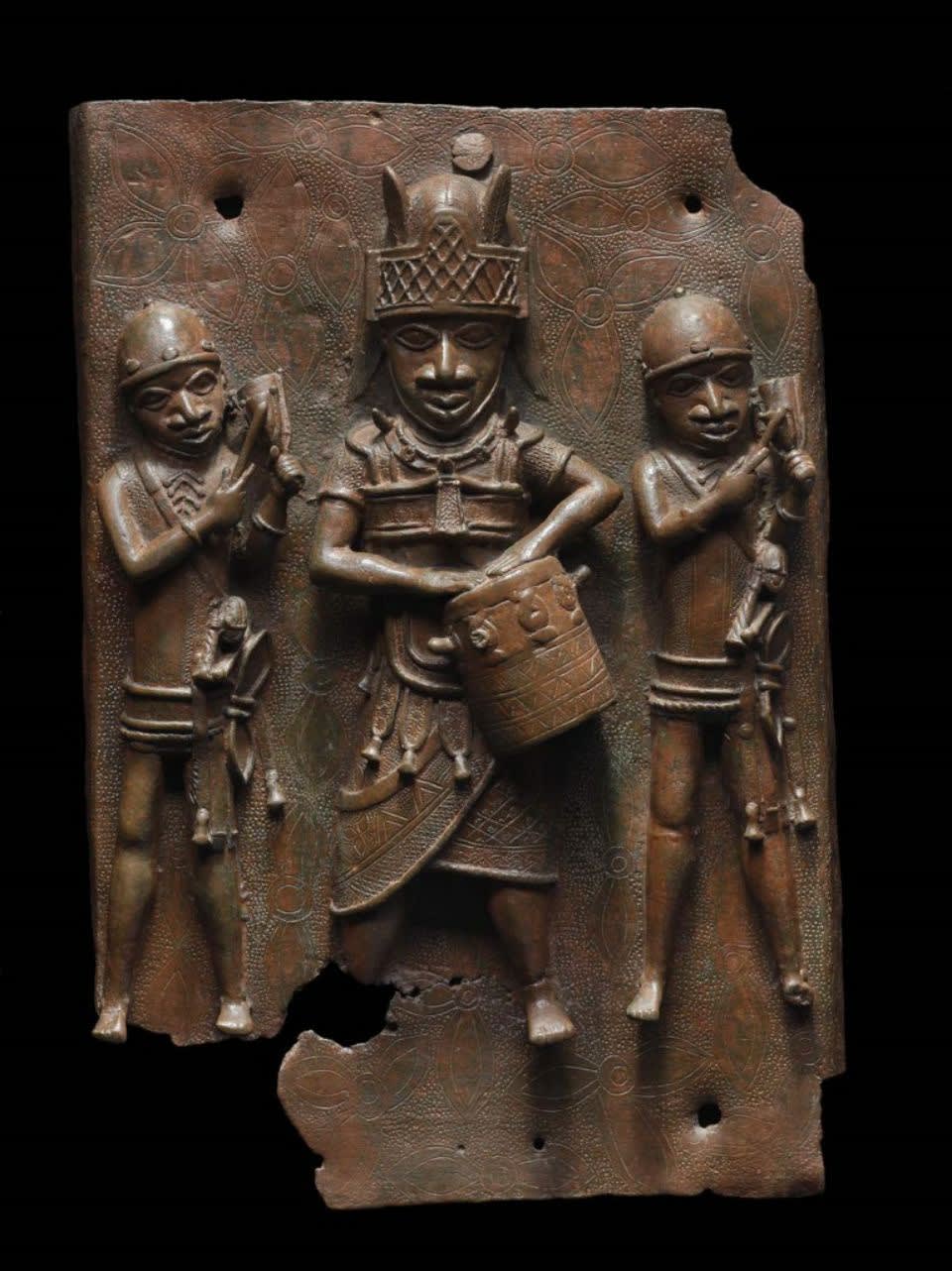
Accompanied by a drum roll by the above musician, The Museum of Fine Arts, Boston, has unveiled a new gallery dedicated to the Robert Owen Lehman Collection of bronzes and ivories created in the ancient Kingdom of Benin, located in present-day Nigeria. The single greatest private holding of objects from Benin (not to be confused with the West African Republic of Bénin, the former Dahomey) the Lehman Collection was a gift to the Museum in 2012. Lehman, a banker and a great-grandson of a founder of Lehman Brothers, had purchased the Benin sculptures between the 1950s and the 1970s. On display for the first time in Boston, the 36 objects (two Lehman Collection loans are included) comprising 30 bronzes and six ivories, all date from the 15th to the 19th centuries. The gallery, which was completely renovated, also includes two early ivories from Sierra Leone and Guinea, crafted by African artists for the European market. Read all about it here. For an inventory of the donation, including provenances, click here.
The plaque above has a typical provenance for a Benin bronze: Ex William Downing Webster, London; sold by him on October 15, 1898 for £ 19 to Lt.-General Augustus Henry Pitt-Rivers (b. 1827 – d. 1900), Farnham, England; until the 1960s, kept at the Pitt-Rivers Museum, Farnham. The collection of the privately-owned Pitt-Rivers museum passed by descent through Augustus Henry Pitt-Rivers’s son Alexander Lane Fox Pitt-Rivers to his grandson, Captain George Pitt-Rivers (1890-1966) and his common law wife, Stella Howson-Clive (Pitt-Rivers). The museum closed in the 1960s and the collection was sold.
The provenance of these Benin bronzes remains the origin of a lot of controversy. What the MFA forgot to list was that Webster most likely purchased this plaque from a British soldier returning from the Benin Expedition, which had sacked the kingdom’s capital. So, understandably, not everybody is amused by this donation. For the reaction of the Nigerian National Commission on Museums and Monuments, that demands a return of the objects, click here. More on the story on the Elginism blog here, and lastly, a more nuanced view by Chika Okeke-Agulu here.
